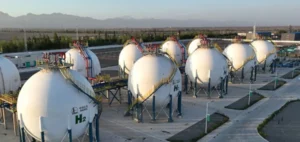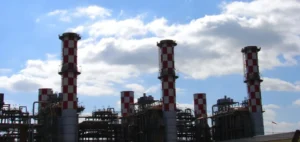ADNOC and TAQA are preparing a new site in the Emirates to produce 30 GW by 2030.
This project reinforces the Emirates’ position as a leader in the energy transition.
ADNOC: producing at least 30 GW of green hydrogen by 2030
This partnership, signed at ADIPEC, combines ADNOC’s powerful capabilities with TAQA’s expertise in renewable energies.
It is in line with Abu Dhabi’s ambitions for growth based on renewable energies.
TAQA is 75% owned by the federal government.
According to Mohamed Hassan Alsuwaidi, Chairman of TAQA, the partnership is “a catalyst” for accelerating the development of the hydrogen market.
He emphasizes the company’s experience in the field of solar energy.
His aim is to make Abu Dhabi a hub for green hydrogen, using photovoltaic energy and desalinated water.
Sultan Ahmed Al Jaber, Emirati Minister of Industry, affirms that the partnership “perpetuates ADNOC’s business model”.
He is convinced that the energy transition offers many business opportunities.
The hydrogen power plant project should also promote local growth.
A flagship project for Emirati ambitions
The launch of the project is an opportunity for the United Arab Emirates to reiterate its ambition to host COP28 in 2023.
The country is “committed to building an inclusive energy ecosystem”, says Sultan Ahmed Al Jaber.
All the more so as the country is in the process of diversifying its energy mix with low-cost solar energy.
ADNOC also benefits from the Emirates’ proximity to the world’s major hydrogen demand centers.
Demand for hydrogen is set to rise sharply over the next few years.






















